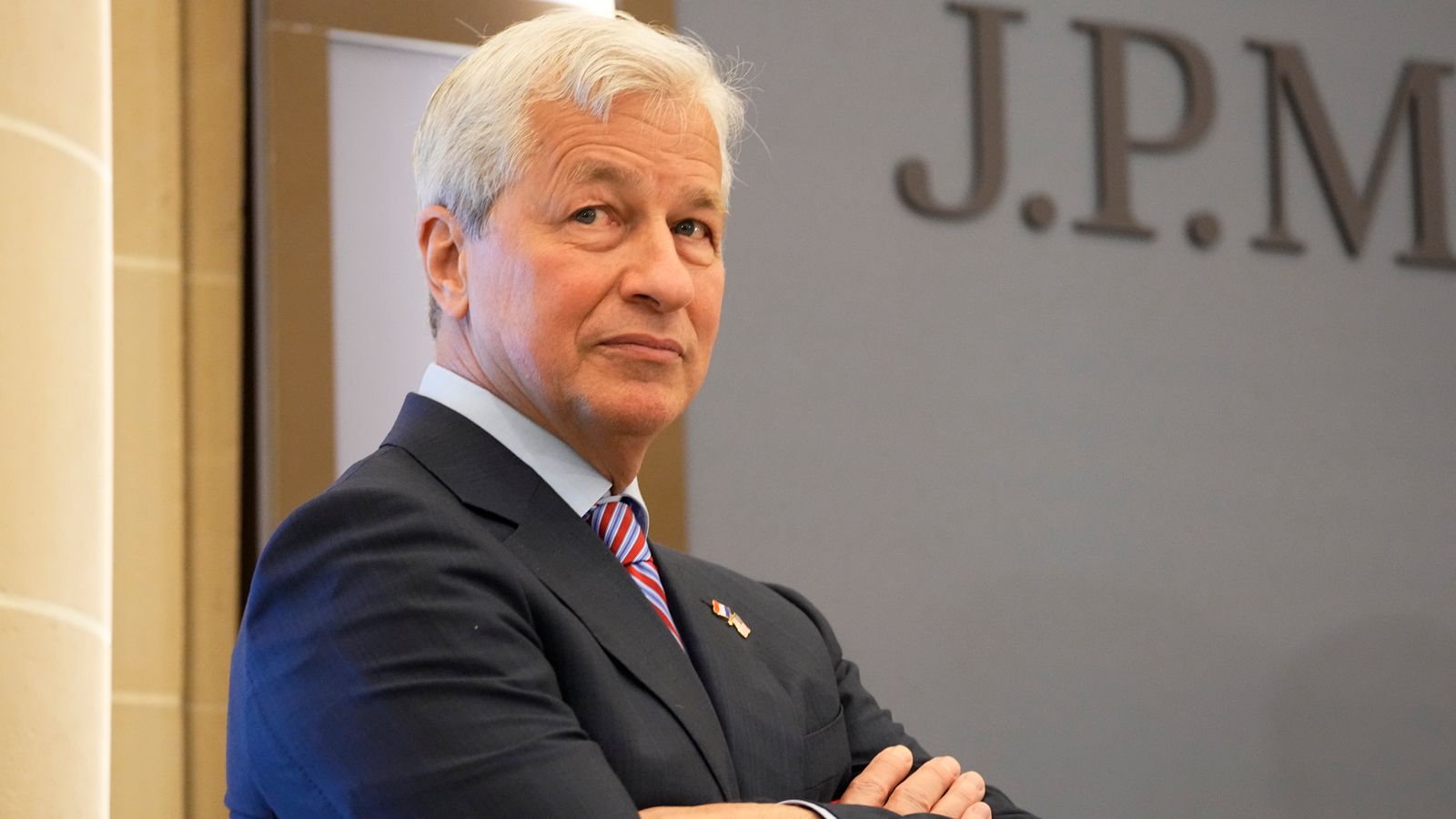It is always nice to be loved – and America’s most prominent banker is certainly feeling the love right now.
Jamie Dimon, the chief executive of the country’s largest bank, JP Morgan Chase, has been awarded options over some 1.5 million shares as part of a retention bonus.
The options become exercisable five years from now and any shares Mr Dimon receives from them must be held until July 2031. It is thought that the award could yield a profit to Mr Dimon of around $50m (£37m) over a 10-year period.
The award is on top of Mr Dimon’s regular salary which, in 2020, came to $31.5m (£23m).
JP Morgan explained: “This special award reflects the board’s desire for Mr Dimon to continue to lead the firm for a further significant number of years.
“In making the special award, the board considered the importance of Mr Dimon’s continuing, long-term stewardship of the firm, leadership continuity, and management succession planning amid a highly competitive landscape for executive leadership talent.
“The board also took into account other factors, including the firm’s strong performance under Mr Dimon’s stewardship since 2005, his exemplary leadership and his significant contributions to the firm’s success during his tenure.”
The award is significant for a number of reasons. Firstly, it highlights the fabulous rewards available to bankers on Wall Street that are just not available to their peers elsewhere around the world.
To put Mr Dimon’s package into context, Noel Quinn, chief executive of HSBC, Europe’s largest quoted bank, earns a basic annual salary of £1.27m, a fixed pay allowance of £1.7m and a pension allowance worth £127,100. If he hits his targets, he could earn a maximum bonus of £2.733m, while the most he can earn under his long-term incentive award is £4.06m.
The second thing highlighted by the award is just how determined JP Morgan is to retain the services of Mr Dimon. He has received special awards in the past but never one that was specifically aimed at tying him to the bank.
It also represents a vote of confidence in Mr Dimon’s health. The 65-year old has suffered a couple of major scares during his 16 years at the helm, receiving treatment for throat cancer in 2014 and then, in March last year, being rushed to hospital in New York for emergency heart surgery after suffering an acute aortic dissection, a potentially fatal condition.
Mr Dimon, having been told by his doctor to take a cab to hospital because he didn’t have time to wait for an ambulance, was in surgery for seven hours. He later told the Wall Street Journal: “I knew I might not make it.”
He was back at work a month later as the bank sought to confront the onslaught of COVID-19 on it and its customers.
The timing of the award is also fascinating because it comes a mere two months after a shake-up in the ranks of JP Morgan’s top management that began a wave of speculation on Wall Street as to how long Mr Dimon would be sticking around.
It promoted Marianne Lake, the chief executive of consumer lending and Jennifer Piepszak, the chief financial officer, to the posts of co-head of consumer and community banking – putting the pair in charge of a sprawling $50bn-a-year business whose activities include mortgages, car loans, small business lending, credit cards and wealth management.
The move effectively signalled that the pair, who are close friends, were among the leading contenders to succeed Mr Dimon and attracted considerable interest in the City because Ms Lake, who studied physics at Reading University before qualifying as an accountant with PwC, holds British nationality.
At the time, JP Morgan made clear that the board had told Mr Dimon it wanted him to remain in his post for a “significant” number of years, but that did not stop the speculation.
So this options award will send out a signal to Wall Street that Mr Dimon, who recently made an impassioned call for employees to return to the office, is going nowhere soon.
Mr Dimon’s longevity at JP Morgan has been phenomenal.
He is the only remaining chief executive of a major bank to have navigated it through the global financial crisis, now more than a decade ago, having built JP Morgan Chase into America’s tenth-largest company. The bank’s share price has quadrupled during the last decade – it is up by 18% this year alone – and it now has a stock market valuation of $453.1bn.
Some of the biggest names in global banking, including the Standard Chartered chief executive Bill Winters, the Barclays chief executive Jes Staley, and the Wells Fargo chief executive Charlie Scharf, have all been named at some point in the past as a potential successor to Mr Dimon and yet he has outlasted them all.
Another particularly interesting aspect to the award is that there is a provision in it under which Mr Dimon will be able to continue to exercise the options in the event of him resigning “to accept a government office” or “to become a candidate for an elective government office”.
The implication is that Mr Dimon, who grew up in Queens, New York, as the son of Greek immigrants, has not yet given up hope of a tilt at the presidency.
A Democrat supporter, who enjoyed close ties to the White House during Barack Obama’s presidency, he was rumoured in 2018 to be thinking of running for office.
Those rumours intensified when, in September that year, he said he could beat Donald Trump in 2020: “I’m smarter than he is. I would be fine. He could punch me all he wants, it wouldn’t work with me. I’d fight right back.
“And, by the way, this wealthy New Yorker actually earned his money. It wasn’t a gift from Daddy.”
He later apologised – not before Mr Trump had, inevitably, hit back – saying that he could not run for office due to his differences with the left of the Democratic Party.
Yet the feeling persists that Mr Dimon – who another former president, Bill Clinton, said “would be really good in politics” – has not given up on the idea.
It would certainly make for a fascinating development in what has already been a fascinating career.






















